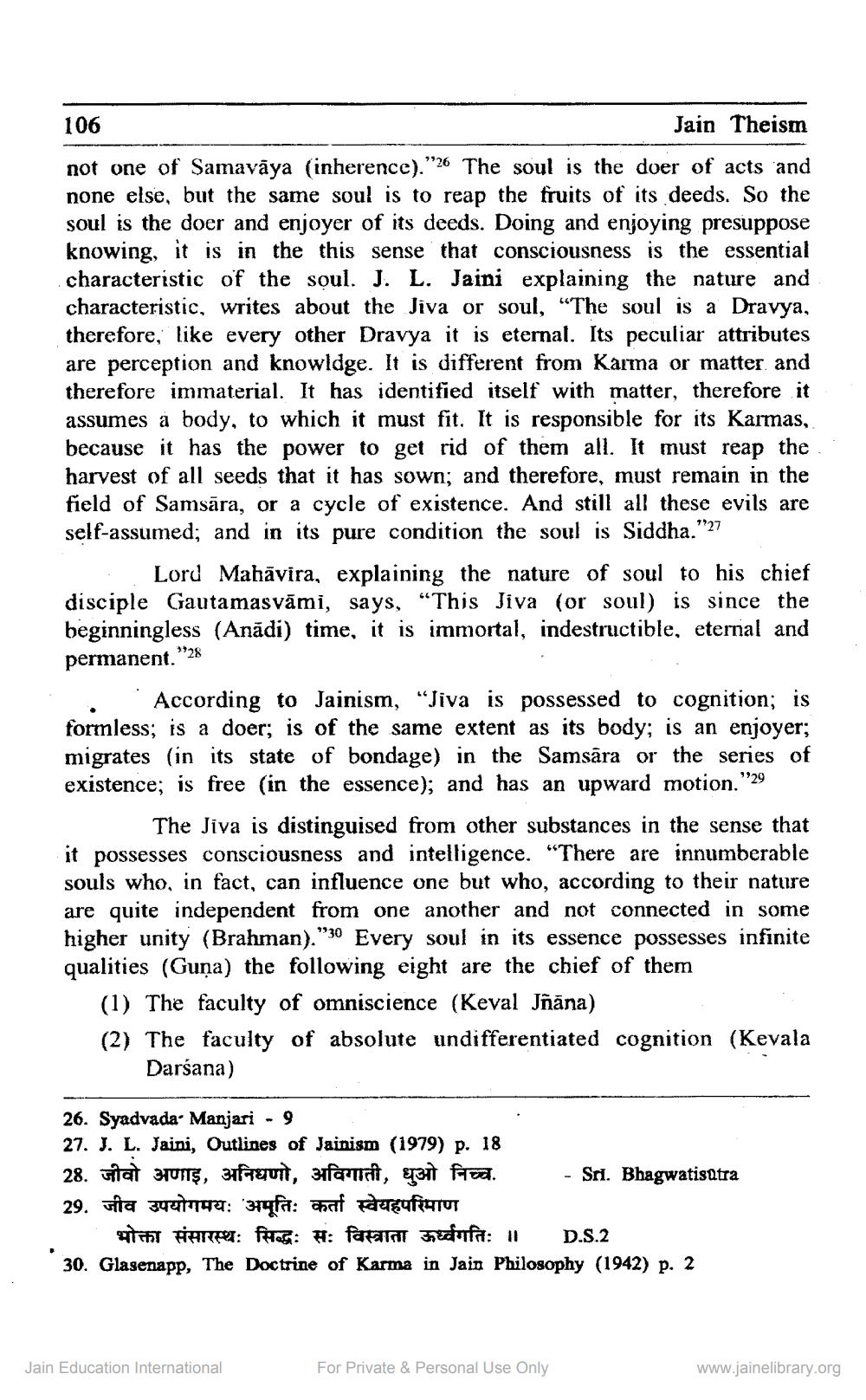________________
106
Jain Theism not one of Şamavāya (inherence)."26 The soul is the doer of acts and none else, but the same soul is to reap the fruits of its deeds. So the soul is the doer and enjoyer of its deeds. Doing and enjoying presuppose knowing, it is in the this sense that consciousness is the essential characteristic of the soul. J. L. Jaini explaining the nature and characteristic, writes about the Jiva or soul, “The soul is a Dravya, therefore, like every other Dravya it is eternal. Its peculiar attributes are perception and knowldge. It is different from Karma or matter and therefore immaterial. It has identified itself with matter, therefore it assumes a body, to which it must fit. It is responsible for its Karmas, because it has the power to get rid of them all. It must reap the harvest of all seeds that it has sown; and therefore, must remain in the field of Samsāra, or a cycle of existence. And still all these evils are self-assumed; and in its pure condition the soul is Siddha."27
.: Lord Mahāvira, explaining the nature of soul to his chief disciple Gautamasvāmi, says, “This Jiva (or soul) is since the beginningless (Anādi) time, it is immortal, indestructible, eternal and permanent. "28
According to Jainism, "Jiva is possessed to cognition; is formless; is a doer; is of the same extent as its body; is an enjoyer; migrates (in its state of bondage) in the Samsāra or the series of existence; is free (in the essence); and has an upward motion."29
The Jiva is distinguised from other substances in the sense that it possesses consciousness and intelligence. “There are innumberable souls who, in fact, can influence one but who, according to their nature are quite independent from one another and not connected in some higher unity (Brahman)."30 Every soul in its essence possesses infinite qualities (Guņa) the following eight are the chief of them
(1) The faculty of omniscience (Keval Jñāna) (2) The faculty of absolute undifferentiated cognition (Kevala
Darsana)
26. Syadvada. Manjari - 9 27. J. L. Jaini, Outlines of Jainism (1979) p. 18 28. wat uş, 3fagut, faucit, ut fred. - Sri. Bhagwatisatra 29. ma gutie: '3rfa: cal perfTUT
ATT FART: Har: #: fafata drifa: D.S.2 30. Glasenapp, The Doctrine of Karma in Jain Philosophy (1942) p. 2
Jain Education International
For Private & Personal Use Only
www.jainelibrary.org




